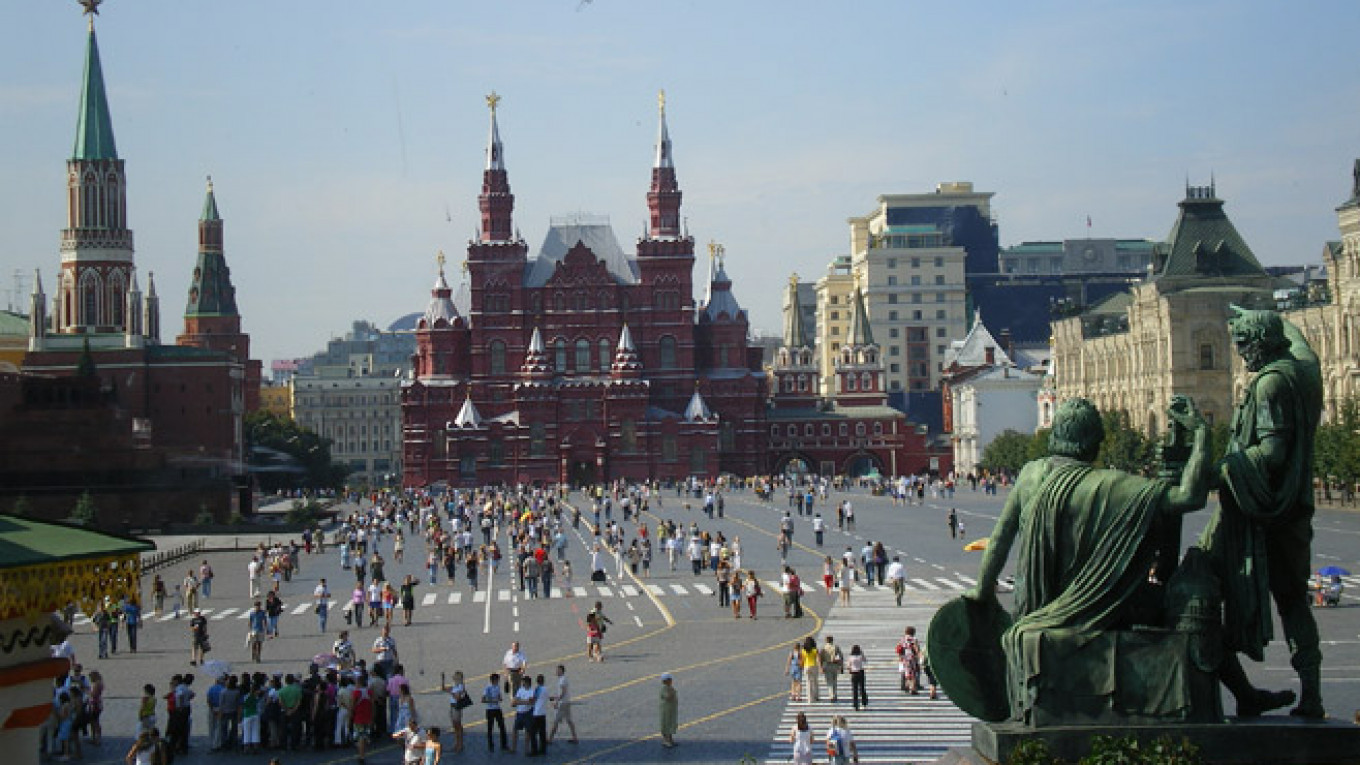Companies are bringing in far fewer employees from the United States and European Union under Russia's quota system, according to data from the Labor Ministry cited by news site RBC on Wednesday.
In the first three months of the year, companies were granted the right to employ 411 Americans under Russia's foreign worker quota system, 68 percent fewer than in the same period last year, RBC reported. Quotas given for EU citizen dropped 37 percent to 10,628 people.
The figures, which exclude some categories of employees such as journalists or executives, come as relations between the Russia and West are at a post-Cold War low over the crisis in Ukraine.
Tit-for-tat sanctions imposed by both sides have helped stall Russian economic growth and drive down the value of the ruble by 40 percent against the U.S. dollar since the start of last year. Russia's economy is expected to shrink by up to 5 percent in 2015.
The total number of quotas granted by the Labor Ministry to bring workers to Russia in the first quarter was down by 12 percent, RBC reported. The top three nationalities coming to work were unchanged from last year — Chinese, Turkish and North Korean.
The number of places granted for Chinese employees was down 13 percent to 80,622 people, while the quotas for Turkish workers fell 21 percent to 54,730. One of the few areas of growth was in work slots for North Koreans, which rose 27 percent this year to hit 47,364.
The most popular professions have been almost entirely in the construction industry so far this year. Companies have been granted the right to employ from overseas 19,845 masons, 18,376 concrete workers and 14,783 plaster workers.
While these numbers do not represent the total number of foreigners working in Russia, most professions are handled under the quota system. Positions not limited by quotas are mostly in arts and top management levels — journalists and ballerinas do not fall under the quota system, for instance, nor do CEOs or factory directors.
A Message from The Moscow Times:
Dear readers,
We are facing unprecedented challenges. Russia's Prosecutor General's Office has designated The Moscow Times as an "undesirable" organization, criminalizing our work and putting our staff at risk of prosecution. This follows our earlier unjust labeling as a "foreign agent."
These actions are direct attempts to silence independent journalism in Russia. The authorities claim our work "discredits the decisions of the Russian leadership." We see things differently: we strive to provide accurate, unbiased reporting on Russia.
We, the journalists of The Moscow Times, refuse to be silenced. But to continue our work, we need your help.
Your support, no matter how small, makes a world of difference. If you can, please support us monthly starting from just $2. It's quick to set up, and every contribution makes a significant impact.
By supporting The Moscow Times, you're defending open, independent journalism in the face of repression. Thank you for standing with us.
Remind me later.






